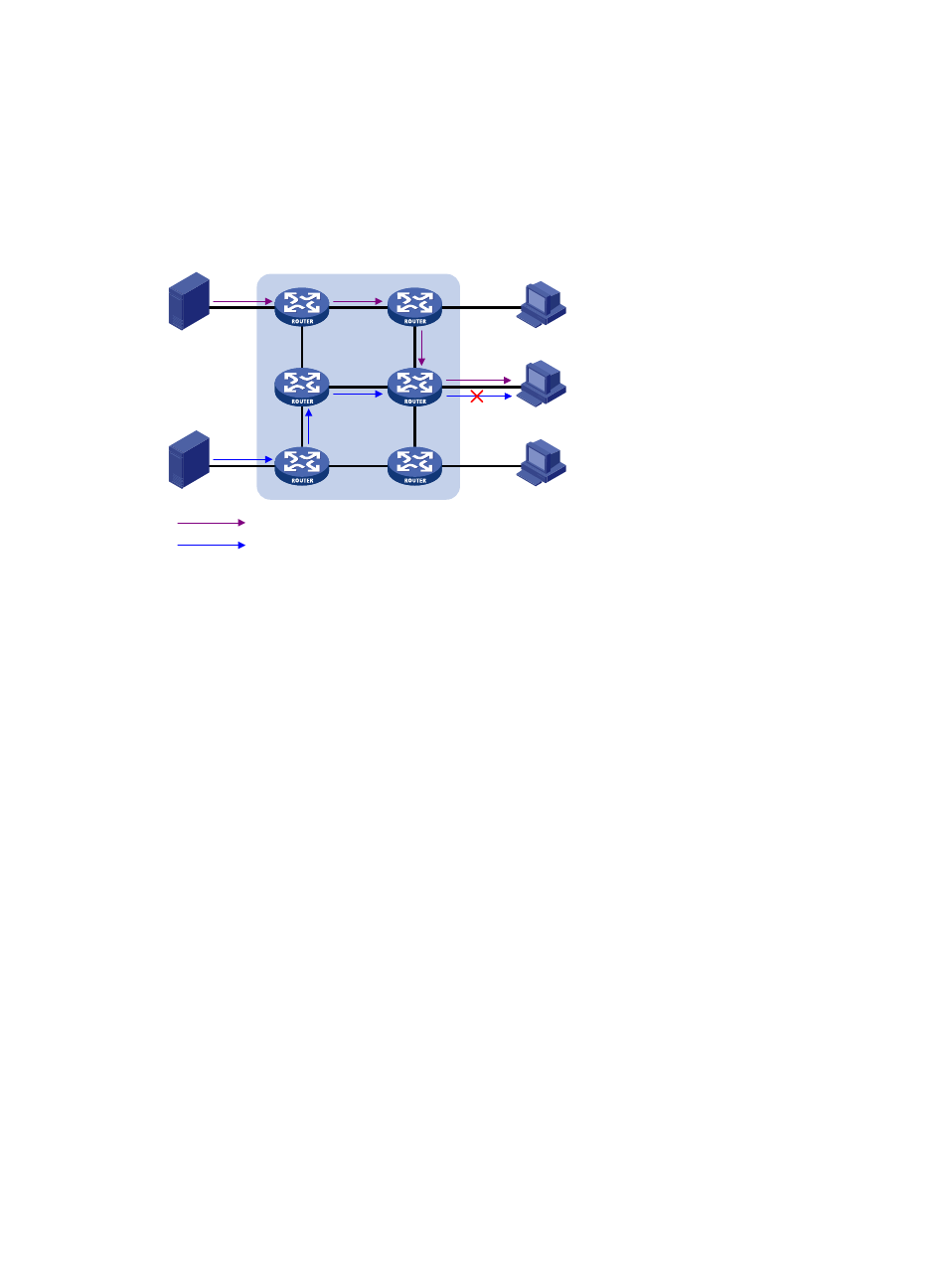Enhancements in query and report capabilities – H3C Technologies H3C S10500 Series Switches User Manual
Page 115

100
•
If it needs to reject multicast data from specific sources like S1, S2, …, it sends a report with the
Filter-Mode denoted as “Exclude Sources (S1, S2, …)”.
As shown in
, the network comprises two multicast sources, Source 1 (S1) and Source 2 (S2),
both of which can send multicast data to multicast group G. Host B is only interested in the multicast data
that Source 1 sends to G but not in the data from Source 2.
Figure 34 Flow paths of source-and-group-specific multicast traffic
Source 2
Receiver
Host A
Host B
Host C
Packets (S1,G)
Packets (S2,G)
Source 1
In the case of IGMPv1 or IGMPv2, Host B cannot select multicast sources when it joins multicast group G.
Therefore, multicast streams from both Source 1 and Source 2 will flow to Host B whether or not it needs
them.
When IGMPv3 is running between the hosts and routers, Host B can explicitly express that it needs to
receive the multicast data that Source 1 sends to multicast group G—denoted as (S1, G), rather than the
multicast data that Source 2 sends to multicast group G—denoted as (S2, G). Thus, only multicast data
from Source 1 will be delivered to Host B.
Enhancements in query and report capabilities
1.
Query message carrying the source addresses
IGMPv3 supports not only general queries (feature of IGMPv1) and group-specific queries (feature of
IGMPv2), but also group-and-source-specific queries.
•
A general query does not carry a group address or a source address.
•
A group-specific query carries a group address, but no source address.
•
A group-and-source-specific query carries a group address and one or more source addresses.
2.
Reports containing multiple group records
Unlike an IGMPv1 or IGMPv2 report message, an IGMPv3 report message is destined to 224.0.0.22
and contains one or more group records. Each group record contains a multicast group address and a
multicast source address list.
Group records fall into the following categories:
•
IS_IN—The source filtering mode is Include. The report sender requests the multicast data from only
the sources defined in the specified multicast source list.
•
IS_EX—The source filtering mode is Exclude. The report sender requests the multicast data from any
sources but those defined in the specified multicast source list.
